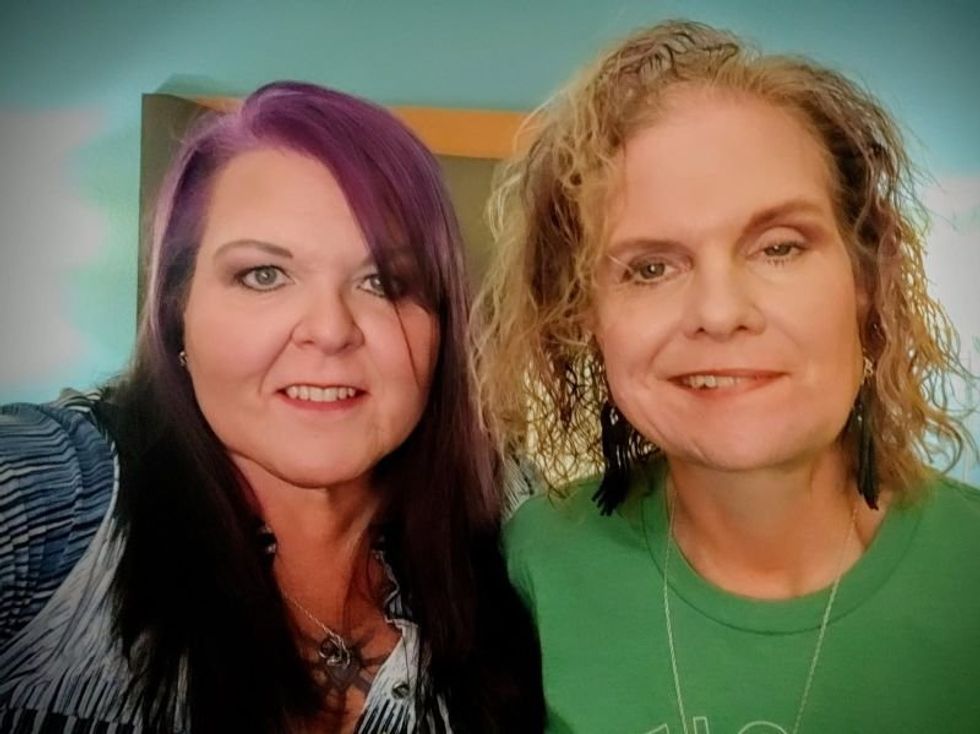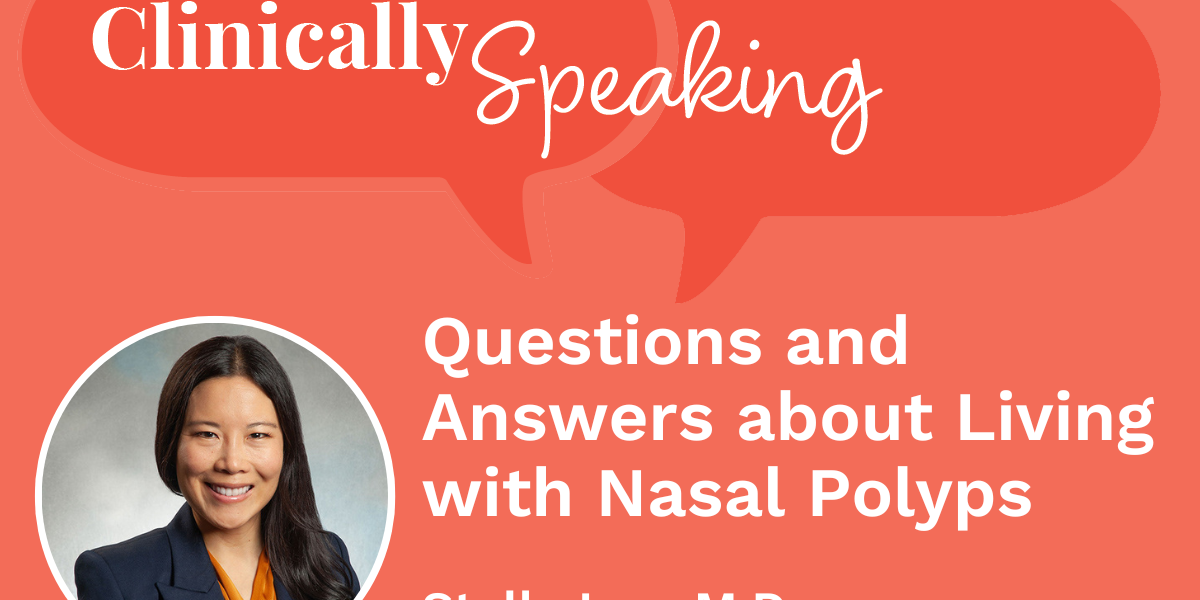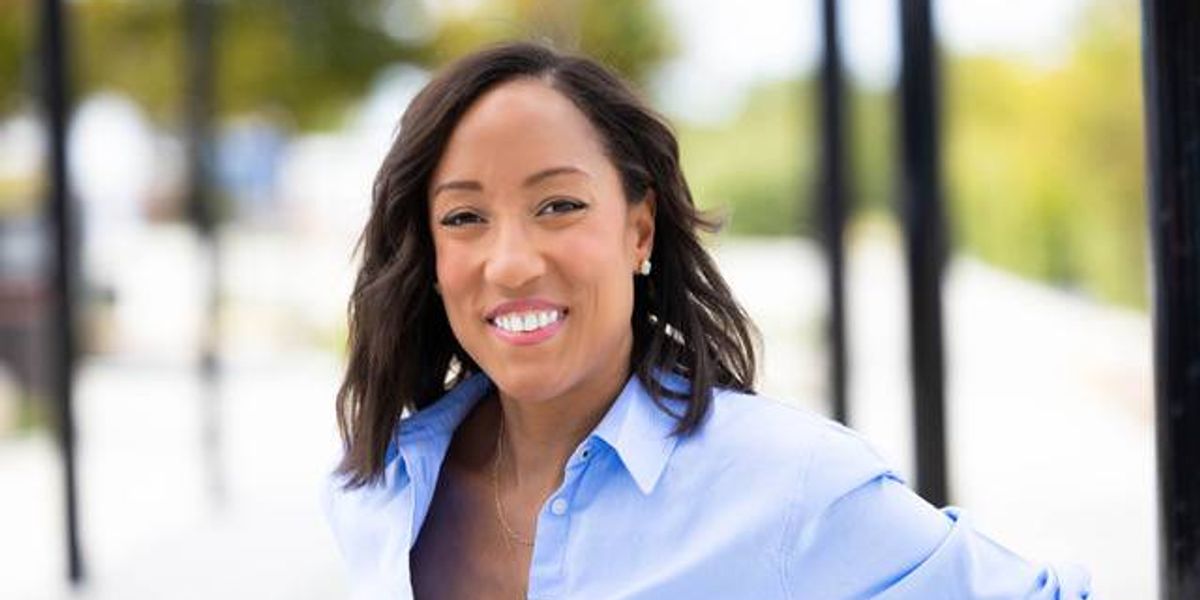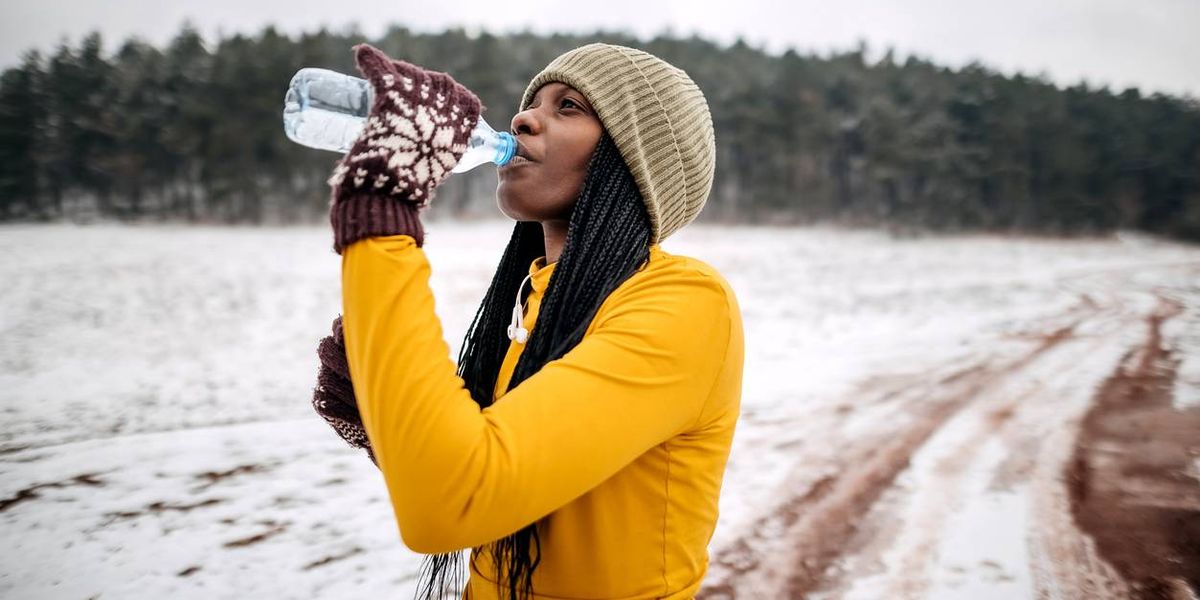Caregiving for My Twin Sister with Leptomeningeal Disease
As told to Jacquelyne Froeber
My sister Briana is the yin to my yang.
As fraternal twins, you’d think that we’d want some space after sharing a uterus for nine months, but we were basically inseparable from birth.
Briana and I went to the same schools, shared the same friends, played the same sports and got our first jobs together at Braum’s Ice Cream & Dairy Store. We even had our own language.
After college, Briana and I got real jobs and we lived about 20 minutes from each other in Oklahoma. We always made time to see each other. At the very least we’d meet at the gym after work during the week.
But in 2017, our routine changed. I started having stabbing pains in my chest and I was diagnosed with pericarditis, or inflammation around the heart. The pain was so severe that I couldn’t exercise, and I had to take a break from the gym. My doctor said I would recover, but it may take months for me to feel better.
Briana and Kyle, 2017
Not seeing my sister during the week was tough, but we talked or texted every day. I was still recovering when my dad suddenly got sick and had gallbladder surgery. Then he had a stroke and things went downhill fast.
When Briana and I met up at the hospital to see our dad, I could tell right away that something was off. She said she’d been having severe, debilitating headaches for a few days, and nothing helped ease the pain.
Over the next week, Dad’s condition continued to get worse, and so did Briana’s. When we met again at the hospital, I could see the pain on her face. I told Briana to walk over to the ER, and I would meet her there after I talked to the doctor about dad’s condition.
By the time I walked to the ER, Briana had been admitted. I was only in her room for a few seconds before the doctor came in and asked me if I wanted a chair. I told her I liked to stand.
“Briana has a tumor in her brain, and we need to operate as soon as possible,” she said.
I wished I’d taken her up on that chair. The inflammation in my chest burned like a thousand suns. My mind reeled trying to catch up — one minute I was deciding whether to keep my father on life support and the next my sister had a brain tumor.
Despite the chaos swirling around us, Briana was her comedic self. During pre-op for her surgery the next morning, the doctor asked if she knew why she was there.
“To remove the alien probe from my head,” she said.
Classic Briana.
As they wheeled her away into the operating room, I felt my knees buckle. My body desperately wanted to fold over and curl up in a ball so I could scream and cry in the hallway that connected my unconscious father and my sister.
But I knew I couldn’t do that. My family was depending on me — I was depending on me — to be strong and keep it all together.
Right after Briana came out of surgery, my dad died.
As painful as it was, there was no time to grieve. The surgeon said Briana’s surgery went well, but the initial results said the tumor was cancer. It was melanoma.
My first thought was that it sounded absurd, and the doctors were lacking knowledge about melanoma. Briana was 41 years old and had no history of skin cancer and no cancer was found anywhere else in her body. But the official lab results came back that week, and it was, in fact, melanoma — which it turns out isn’t always skin cancer. It’s cancer of the melanocytes, which can also be in the brain.
The rare diagnosis aside, Briana needed help while she healed. Thankfully, the company I worked for let me take intermittent FMLA.
For the next few weeks, I took Briana to her follow-up appointments and Gamma Knife surgery — a type of noninvasive radiation.
She seemed to be doing great, but about five weeks in, I went to her house and my heart sank. The left side of her face was drooping. “I think you’ve had a stroke,” I said.
We went to the ER and that was the first time I heard the words “leptomeningeal disease.” It’s when cancer moves out of the tissue into the leptomeninges, which is made up of membranes and fluids in the brain. Needless to say, it didn’t sound good. I was an insurance adjuster — I read medical records all the time — but I’d never heard of this disease.
Briana’s medical team ended up saying she didn’t have leptomeningeal disease — but another tumor had formed in her brain.
I was devastated. I thought we had turned a corner and now we had four rounds of immunotherapy in front of us. The side effects were rough. The vertigo made her so dizzy I had to help her walk — even short distances. And the vomiting was brutal. But by the end of the year we got good news: The tumor was gone.
I felt buoyant, like a weight had been lifted from my body. It was the first good news we’d gotten in a long time, and it felt incredible. My sister was going to be OK. We were going to be OK.
In mid-January, her face started to droop again. Then we learned that Briana did have leptomeningeal disease after all. The doctors gave her three to six months to live.
That was really the start of our “journey” as we called it. Neither one of us liked that word, but other words like “fight” or “war” implied winning and losing. And as Briana said, “I’m not a loser — I’m not going to lose this battle because it’s not a battle. It’s just a journey I have to go through.”
The first thing I did was quit my job and become her full-time caregiver. I started really researching leptomeningeal disease and realized there wasn’t a lot of information out there.
There also weren’t a lot of local resources for managing the disease. Briana’s doctor said we’d have to go to Houston to see specialists. So, that’s what we did.
At least once a month, we’d get in the car and drive nine hours to Houston. Briana would get treatment, then we’d drive back home, and then head back down a few weeks later to see if the medication was working.
I treated the Houston trips like business and I had a routine. I prepped all my questions for the doctors beforehand. I prepped all of our food for on the way there, while we were there and for the way back. I packed our bags and made sure we had the right clothing, toiletries and Briana’s Winnie the Pooh. He went everywhere with us. He was on the journey, too.
When we got home from treatment, I’d get Briana inside, get her in comfortable clothes and put everything immediately in the washer. Then I’d put all the containers in the dishwasher.
By then, usually around 10 p.m., I’d make sure Briana was in bed and asleep. I’d pour myself a glass of wine or grab a beer, whatever I had energy for, and sit down at the kitchen table. And then I would cry. It was the only time I allowed myself to break down because it was really the only time that I didn’t have to be on — I didn’t have to ask questions and follow up and do my own research to try to save my sister. On those nights, I digested the horror unfolding in front of us. The helplessness deep in my gut. The fear.
In 2019, Briana started a clinical trial and that meant driving to Houston every two weeks. And it was a roller coaster of emotions: She had rapid progression and then rapid regression of disease.
Then Covid hit and things got even harder. I couldn’t be in treatment or follow-up visits with Briana — most of the time I couldn’t even go into the hospital. Briana had hearing loss from the radiation and some cognitive issues. There were times when she just couldn’t understand what was happening. I’d be on the other end of the phone listening to her cry or trying to help her find her way around the hospital. A lot of times I’d be grinding my teeth — stressed and angry and frustrated that I was in a hotel room down the street and not with my sister.
I distracted myself by reading every article I could about cancer. I started a Facebook page about leptomeningeal disease and it became a lifeline for me. If Briana was trying something new, I asked for opinions. If I found new research, I posted it. It started to become clear to me that there were more people out there than I’d previously thought living with the disease or caregiving for someone with it. And although I still felt helpless in many aspects, I didn’t feel completely alone.
In September 2021, Briana was actually feeling pretty good. She was on a break from her treatment and there’d been no progression of disease.
We planned a trip to Colorado and saw her friend and hiked around the gorgeous scenery. Then Briana started having pain in her sciatic nerve. I knew in my heart what that meant: progression.
 Kyle and Briana, 2021
Kyle and Briana, 2021
We went to Houston and restarted her medication. At first, everything was OK — the pain was gone. But the pain came back fast and nothing stopped it.
Briana’s decline was swift. Within a day, she went from walking on her own to using a walker and then not being able to walk at all. It was beyond jarring and I wasn’t quite sure what to do. I sat Briana down in a chair in the kitchen and she just fell off of it. It was like she couldn’t understand that she couldn’t walk anymore and she wasn’t making sense.
I called my stepmom. “Briana thinks she can walk, but she can’t,” I sobbed. “She has enough strength to move, but she can’t be left alone.”
My stepmom was stunned. “You’re kidding,” she said.
I wished more than anything I was.
We knew it was time to get hospice involved. I started taking a video of Briana to share with her doctors. I put Pooh bear next to her. “Briana, tell Pooh bear I love you,” I said.
“Pooh bear, I love you … and I love Kyle too!” I stopped the recording and tried to stifle the sobs. But the tears still made their way down my cheeks.
The next day Briana was the most awake and coherent she’d been in days. She was even hungry — she wanted eggs. I knew this was probably the rally before the decline that happens to most people who are close to death.
Later that day she looked at me and said, “Thank you for taking such good care of me. I love you so much.” Then she fell asleep, and she never woke up again.
Briana went into a comatose state. I’d been watching over her one morning and asked my stepmom to step in for a few minutes so I could take a breather. I had my head in my hands when she called out to me that she couldn’t find Briana’s pulse.
That was a thing with Briana and me — I was the only one in the family who could feel her pulse.
I went back into her room. “Yes, she still has a pulse,” I said. And as the words left my mouth, I felt it go away. My sister was gone.
In my family, we believe that if someone dies in the house, you open all the doors to let their spirit go and let them be free. The winter air rushed into the house and by nighttime everything felt cold and empty.
Grief is like a scar. It may get better over time, but the surface is changed forever. I’m still processing that my other half — the person who loved me unconditionally — is gone. And as hard as the journey was, I am forever grateful that I got to take care of her. Briana was given 6 months at best when she was diagnosed, and she lived for four years — a true testament to her strength and spirit.
Next year is our 50th birthday and I’ve planned a trip to a beach resort halfway around the world I know Briana would love. I know she’ll find me there, and we will celebrate together.
Resources
American Cancer Society Caregiver Resource Guide
Leptomeningeal Cancer Foundation
Leptomeningeal Disease (LMD) Community and Support
Have your own Real Women, Real Stories you want to share? Let us know.
Our Real Women, Real Stories are the authentic experiences of real-life women. The views, opinions and experiences shared in these stories are not endorsed by HealthyWomen and do not necessarily reflect the official policy or position of HealthyWomen.
From Your Site Articles
Related Articles Around the Web
Source link
Share this article:













